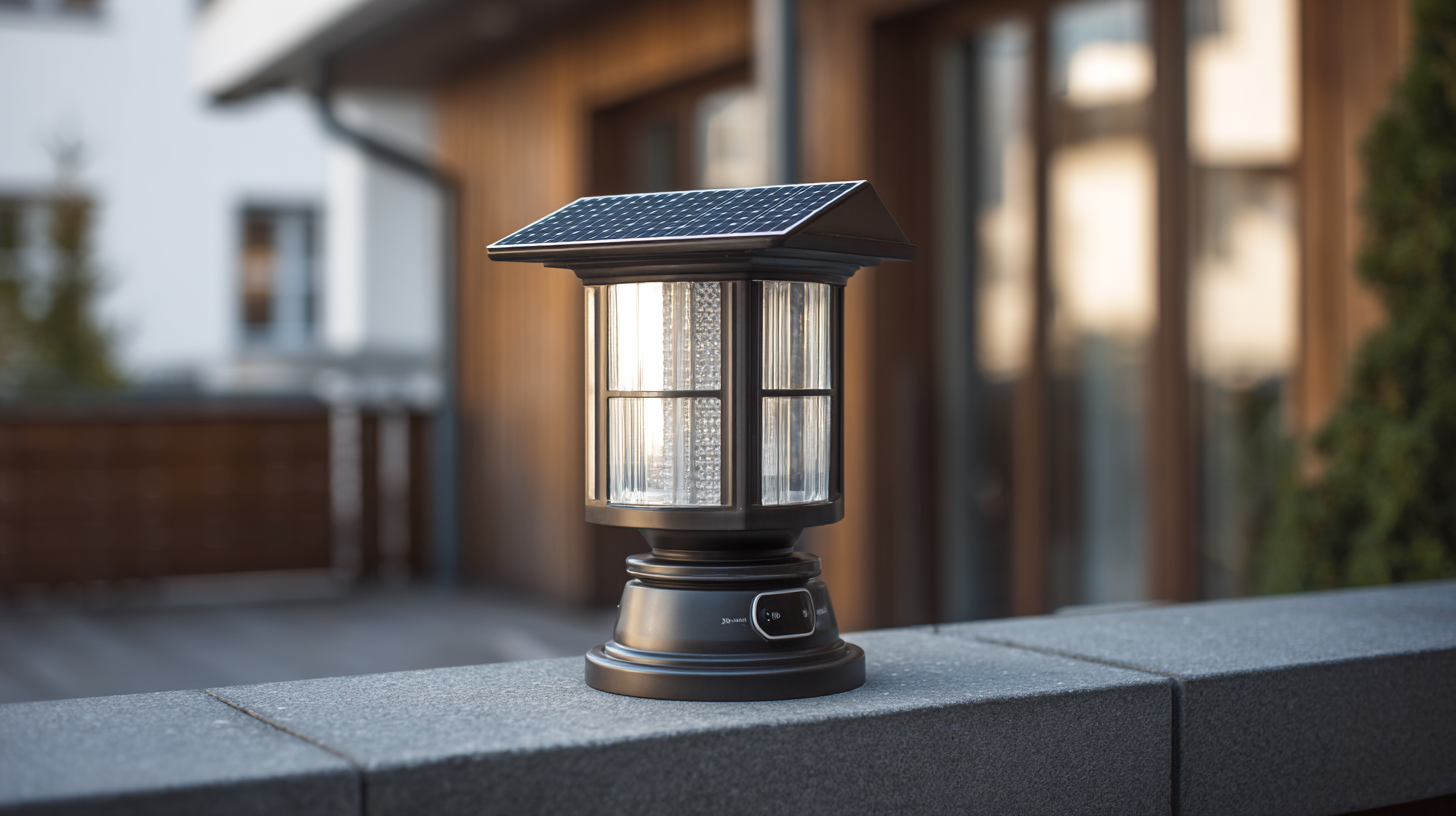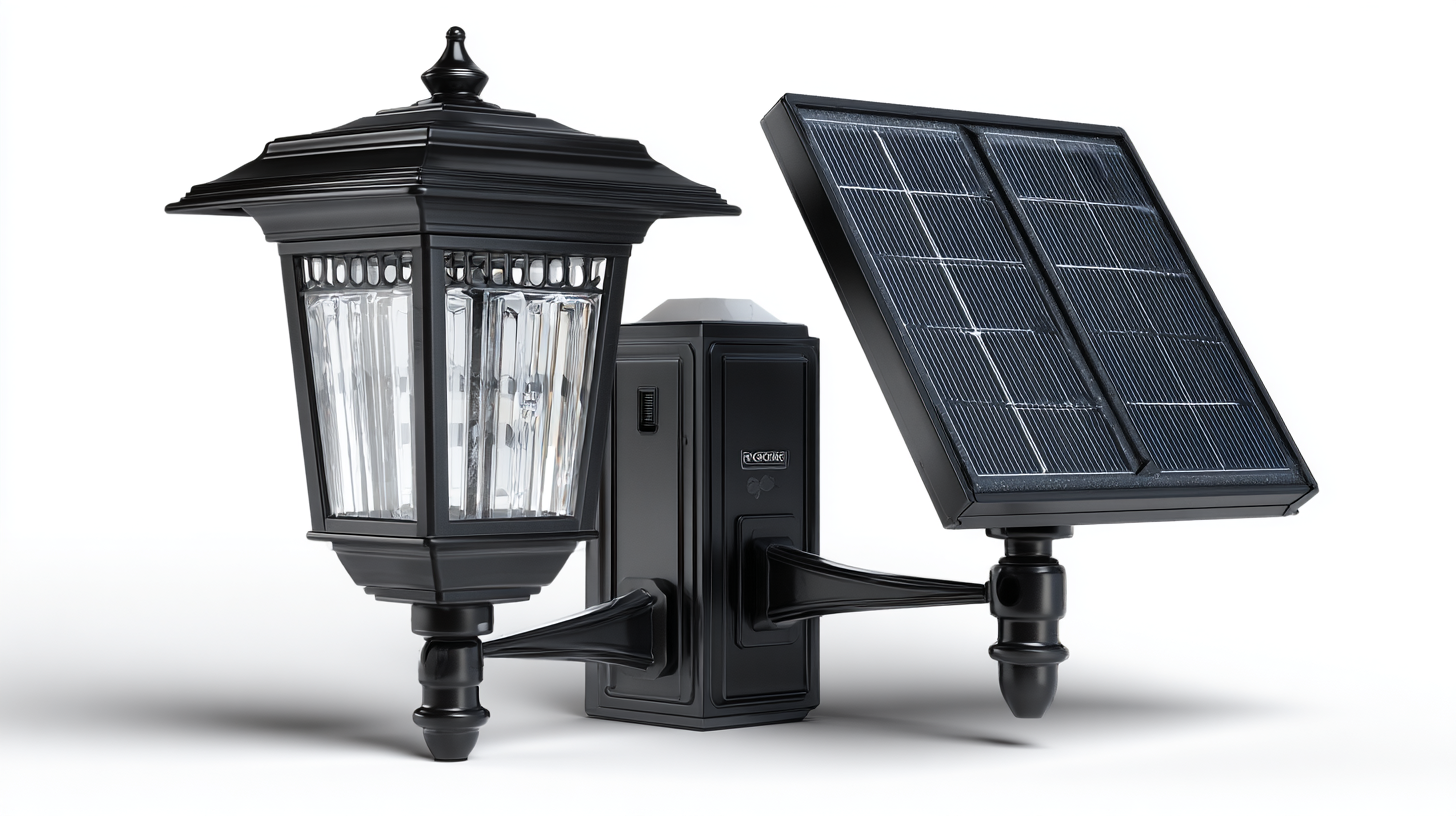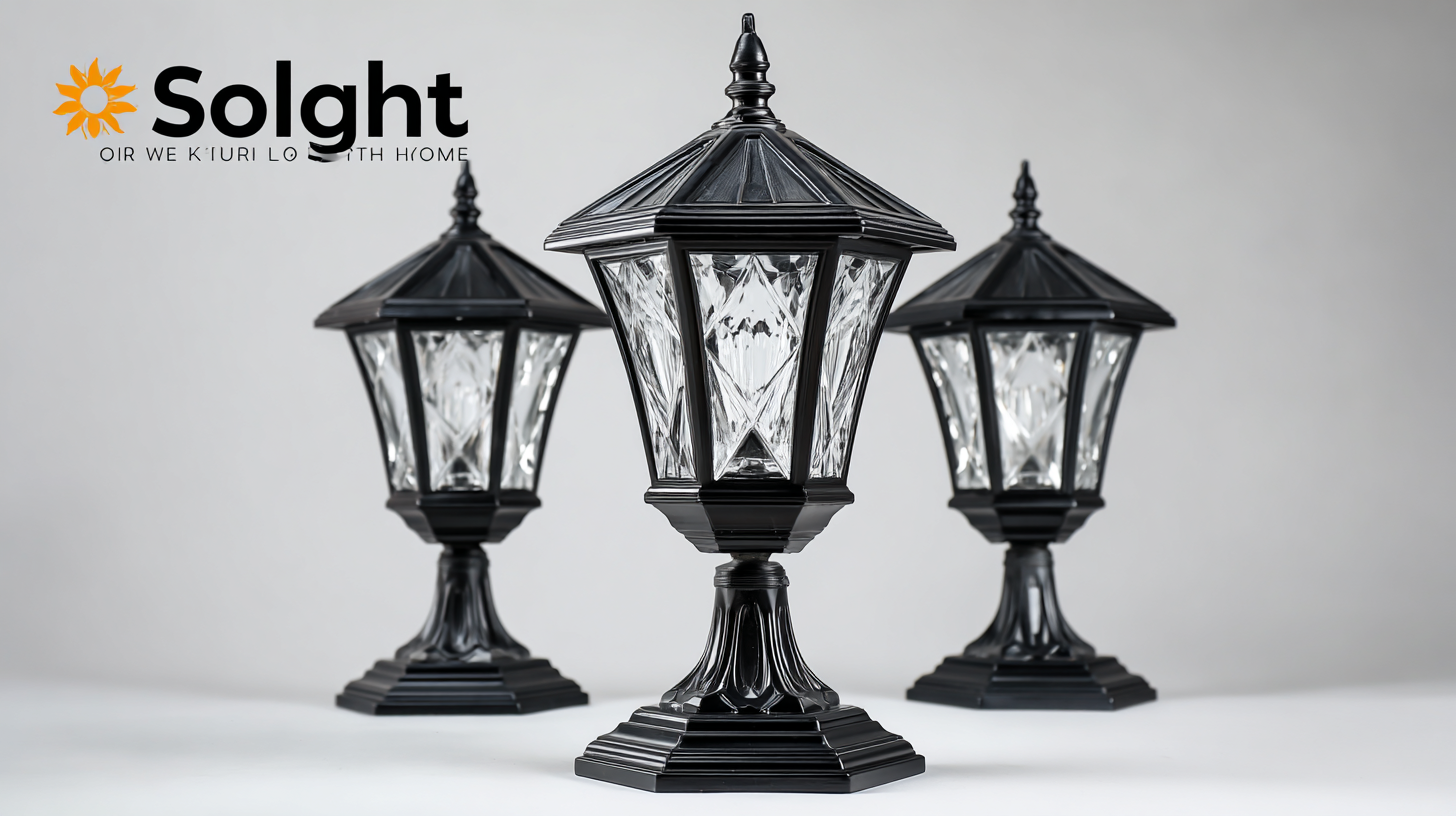Temporary & Portable Solar Lighting
Unveiling the Technical Specifications that Make the Best Solar Light for Home a Must Have
In recent years, the demand for sustainable energy solutions has surged, with solar-powered technologies leading the charge. According to a report by the International Energy Agency, solar energy has become the fastest-growing source of electricity worldwide, with a staggering annual growth rate of over 20% since 2010. As homeowners seek eco-friendly alternatives to traditional lighting, the "Solar Light for Home" market is expanding rapidly.
With technological advancements, the latest solar lights now offer enhanced efficiency, longer battery life, and superior illumination capabilities, making them essential home fixtures. Furthermore, industry import and export certifications for solar products ensure that consumers receive reliable and high-quality options.

In this blog, we will unveil the critical technical specifications that define the best solar lights for home use, equipping you with the knowledge to make informed purchasing decisions.
Understanding the Key Features of High-Quality Solar Lights for Home Use
When selecting high-quality solar lights for home use, it's essential to understand the key features that differentiate the best products from the rest. One of the primary specifications to consider is the lumen output, which indicates the brightness of the light. A higher lumen count means a more intense light, making it ideal for security applications or areas where visibility is crucial. Additionally, look for solar lights equipped with adjustable brightness settings, allowing you to customize the illumination based on your needs.
Another critical feature is the solar panel efficiency. Efficient panels convert sunlight into energy more effectively, ensuring your lights remain charged even on cloudy days. Also, pay attention to the battery capacity; larger batteries store more energy and extend the light's operational time during the night. Lastly, consider materials and build quality; weather-resistant and durable designs not only increase longevity but also enhance overall functionality, making them more reliable in various climates. Choosing solar lights with these specifications ensures you invest in a product that meets both your aesthetic and practical needs.
The Importance of Lumens: How Brightness Impacts Your Solar Light Choice
When choosing the best solar lights for your home, understanding the impact of lumens on brightness is crucial. Lumens measure the amount of light emitted by a source, and selecting solar lights with adequate lumen output can dramatically affect your outdoor spaces. For instance, solar path lights generally range from 50 to 400 lumens; while 50 lumens may suffice for soft ambiance, 300 lumens is suitable for security and visibility. Recent testing of solar fence lights revealed that the brightest models not only enhanced ambiance but also improved safety, affirming the need for luminous efficacy in outdoor lighting solutions.

In addition to brightness, proper placement of solar lights is essential for maximizing their efficiency. According to solar specialists, the optimal positioning can enhance the solar panel's ability to absorb sunlight, leading to brighter and longer-lasting illumination at night. This alignment ensures that the lights operate at their full potential, supporting not only decorative purposes but also functional needs like security and navigation. As solar technology continues to advance, selecting lights that combine high lumen output with strategic placement can significantly elevate outdoor environments while being more cost-effective and eco-friendly.
Battery Life and Efficiency: Selecting the Right Solar Light for Longevity
When it comes to choosing the best solar light for home use, battery life and efficiency are crucial factors. According to the National Renewable Energy Laboratory (NREL), solar lights equipped with lithium-ion batteries can last up to three times longer than traditional lead-acid batteries. This longevity translates to fewer replacements and reduced maintenance costs, making lithium-ion a smart choice for homeowners seeking durability and efficiency. Additionally, the efficiency of the solar panel itself significantly impacts how effectively the light will operate. High-efficiency panels (over 20% efficiency) can gather more sunlight, ensuring better performance even in less-than-ideal conditions.
Tip: Opt for solar lights that feature adaptive brightness technology. This allows the light to dim or brighten based on ambient light levels, maximizing battery life and minimizing energy waste.
Furthermore, consider the charging time; a superior solar light can fully charge in 6-8 hours under direct sunlight, providing enough power for overnight illumination. Research from Solar Energy Industries Association suggests that solar LED lights can provide up to 80% more light than traditional outdoor fixtures, thanks to their effective energy use.
Tip: Look for models with adjustable solar panels that you can position for optimal sunlight exposure, ensuring that your solar lights remain operational even during the shorter days of winter.
Weather Resistance and Durability: Essential Traits for Outdoor Solar Lights
When selecting solar lights for outdoor use, weather resistance and durability are paramount considerations. According to a report by the National Renewable Energy Laboratory (NREL), over 30% of solar lighting failures are attributed to inadequate weatherproofing. High-quality solar lights should boast an IP65 rating or higher, indicating they are dust-tight and resistant to water jets. This level of protection ensures they can withstand rain and dust—common elements that could compromise performance.
Moreover, materials like tempered glass, stainless steel, and UV-resistant plastics are essential for longevity. A study from Solar Energy Industries Association (SEIA) highlights that solar lights made from these materials can generally last up to 50% longer than their cheaper counterparts. As homeowners increasingly seek sustainable solutions, opting for durable and weather-resistant solar lights not only enhances aesthetic appeal but also offers significant cost savings over time by reducing the need for replacements. Investing in such high-quality outdoor solar lighting options ensures functionality and provides peace of mind regardless of the environmental conditions they face.
Unveiling the Technical Specifications that Make the Best Solar Light for Home a Must Have - Weather Resistance and Durability: Essential Traits for Outdoor Solar Lights
| Feature | Specification | Importance |
|---|---|---|
| Weather Resistance | IP65 Rating | Provides protection against dust and water jets, ensuring longevity in outdoor environments. |
| Material | Polycarbonate or Aluminum | Durable materials enhance resistance to impact and corrosion. |
| Battery Type | Lithium-ion | Higher efficiency and longer lifespan compared to standard batteries. |
| Light Source | LED | Low energy consumption with high brightness and longer life. |
| Solar Panel Type | Monocrystalline | Higher efficiency rates and better performance in low light. |
| Charging Time | 6-8 Hours | Allows for adequate energy storage for efficient nighttime operation. |
| Working Time | Up to 12 hours | Provides extended usage during the night. |
| Warranty Period | 2 Years | Assures quality and reliability of the product over time. |
Comparing Solar Panel Technologies: Choosing the Most Effective Option for Your Needs
When it comes to choosing the best solar light for your home, understanding the different solar panel technologies is crucial. The three main types of solar panels—monocrystalline, polycrystalline, and thin-film—each come with their own advantages and drawbacks. Monocrystalline panels, for instance, are known for their high efficiency and longevity, making them a popular choice for homeowners looking to maximize energy output in limited space. Their sleek design and performance in low-light conditions further enhance their appeal.
On the other hand, polycrystalline panels offer a more cost-effective solution without a significant compromise on efficiency. They are made from multiple silicon crystals, which is why they typically have a lower efficiency rating than their monocrystalline counterparts. However, for those with ample roof space and a budget in mind, polycrystalline panels can provide a solid balance between performance and price. Lastly, thin-film technology stands out for its versatility and lightweight nature, making it ideal for unconventional installations. While they generally have lower efficiency, advances in this technology are making them increasingly viable for specific applications, ensuring there's a solar solution for every homeowner’s unique needs.

USA / Americas
1507 Capital Ave, Suite 102
Plano, TX 75074
+1 (214) 838-7010
8:00am – 5:00pm (GMT-6)
Australia / Asia Pacific
503 Cross Keys Rd,
Cavan SA 5094
+61 8 7200 3909
9:00am – 5:00pm (ACDST)
© 2025 Green Frog Systems. | Privacy Policy | Terms & Conditions


